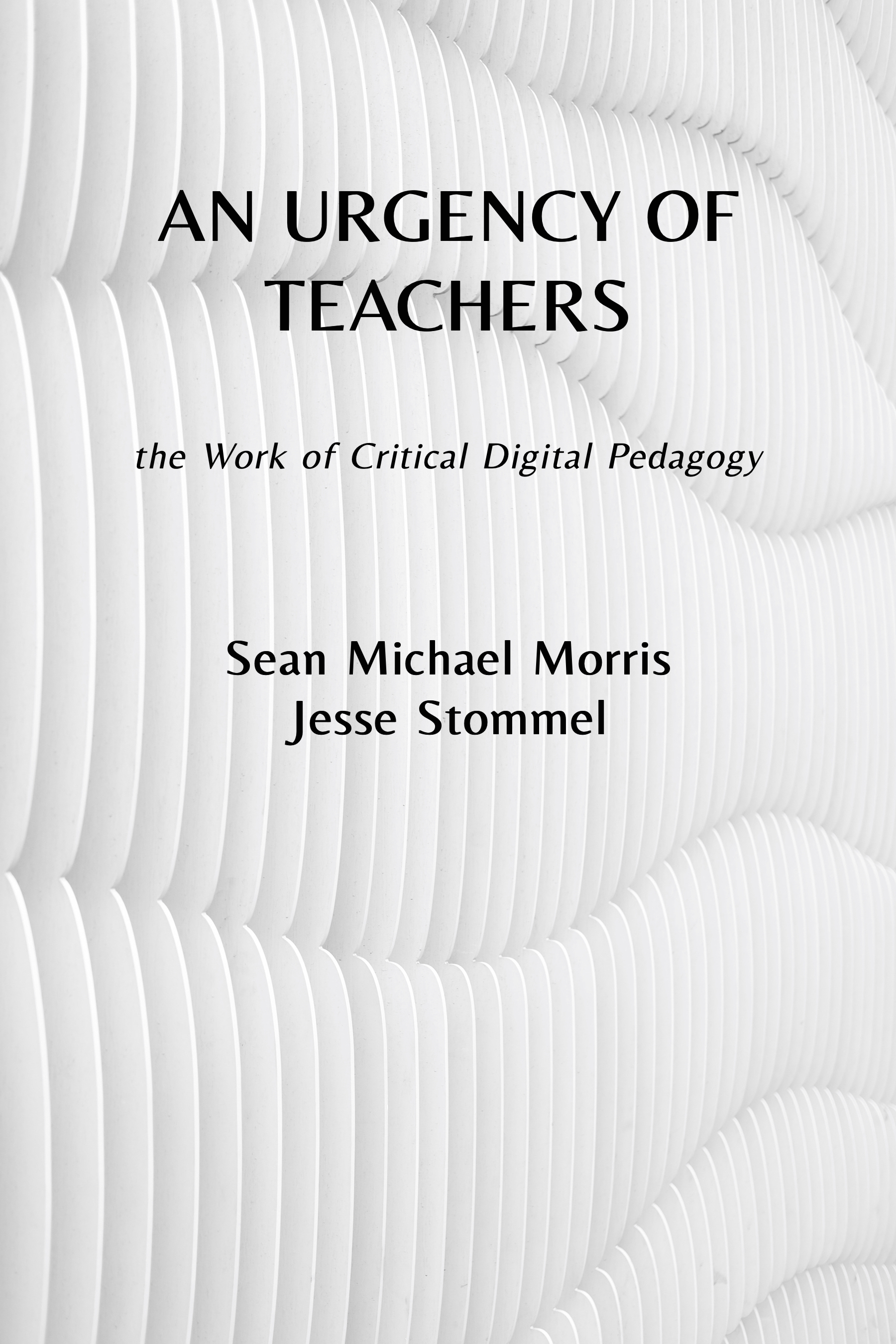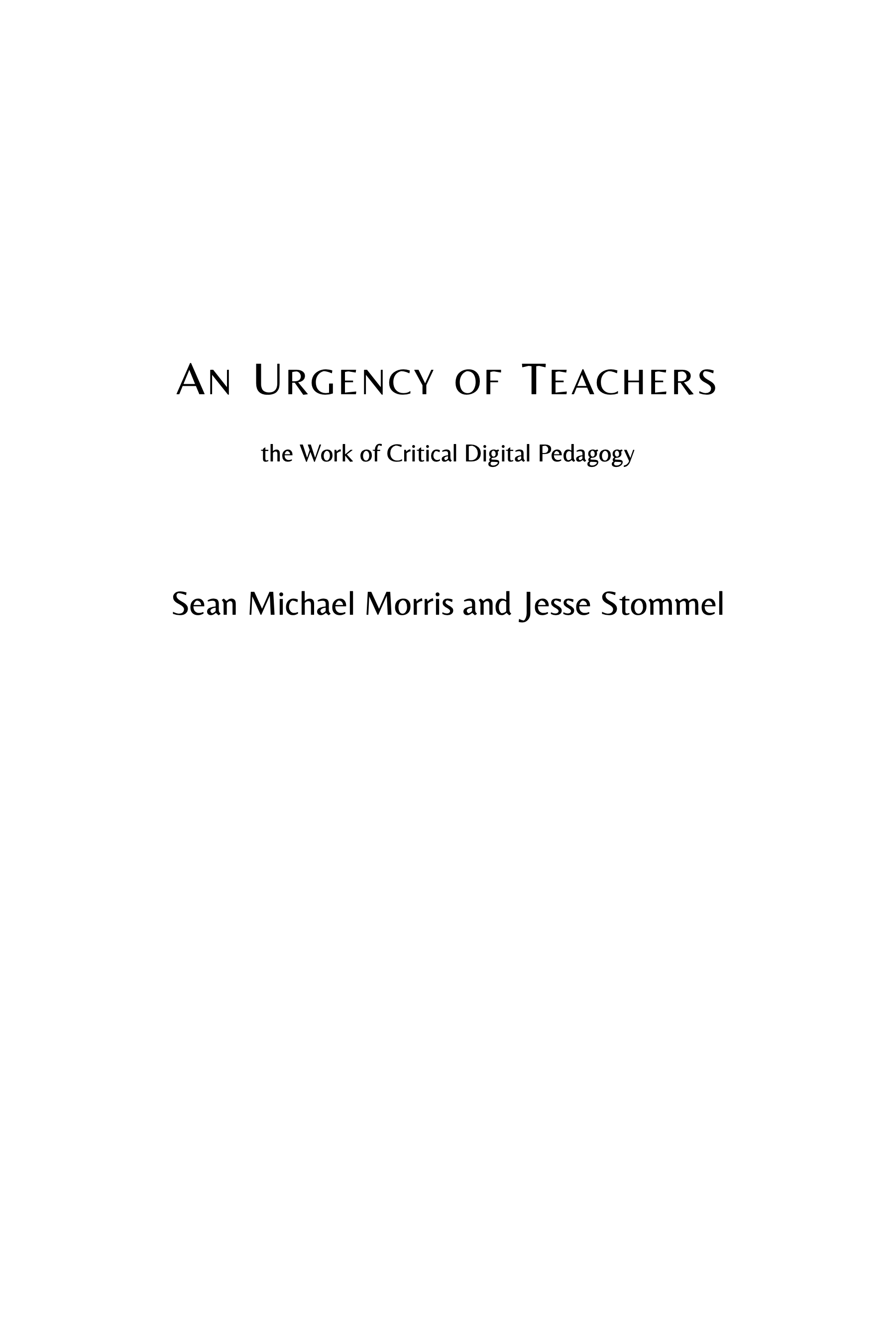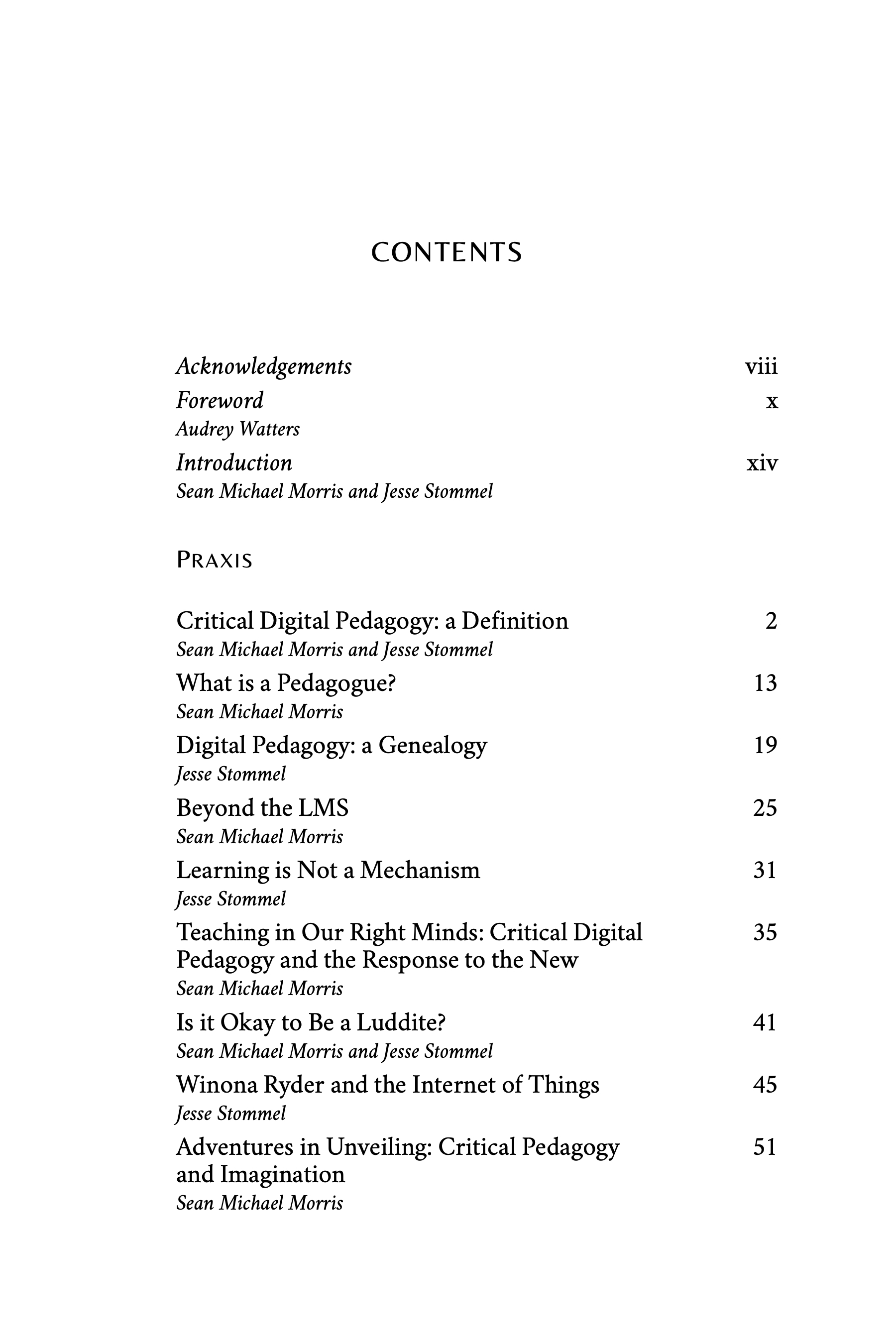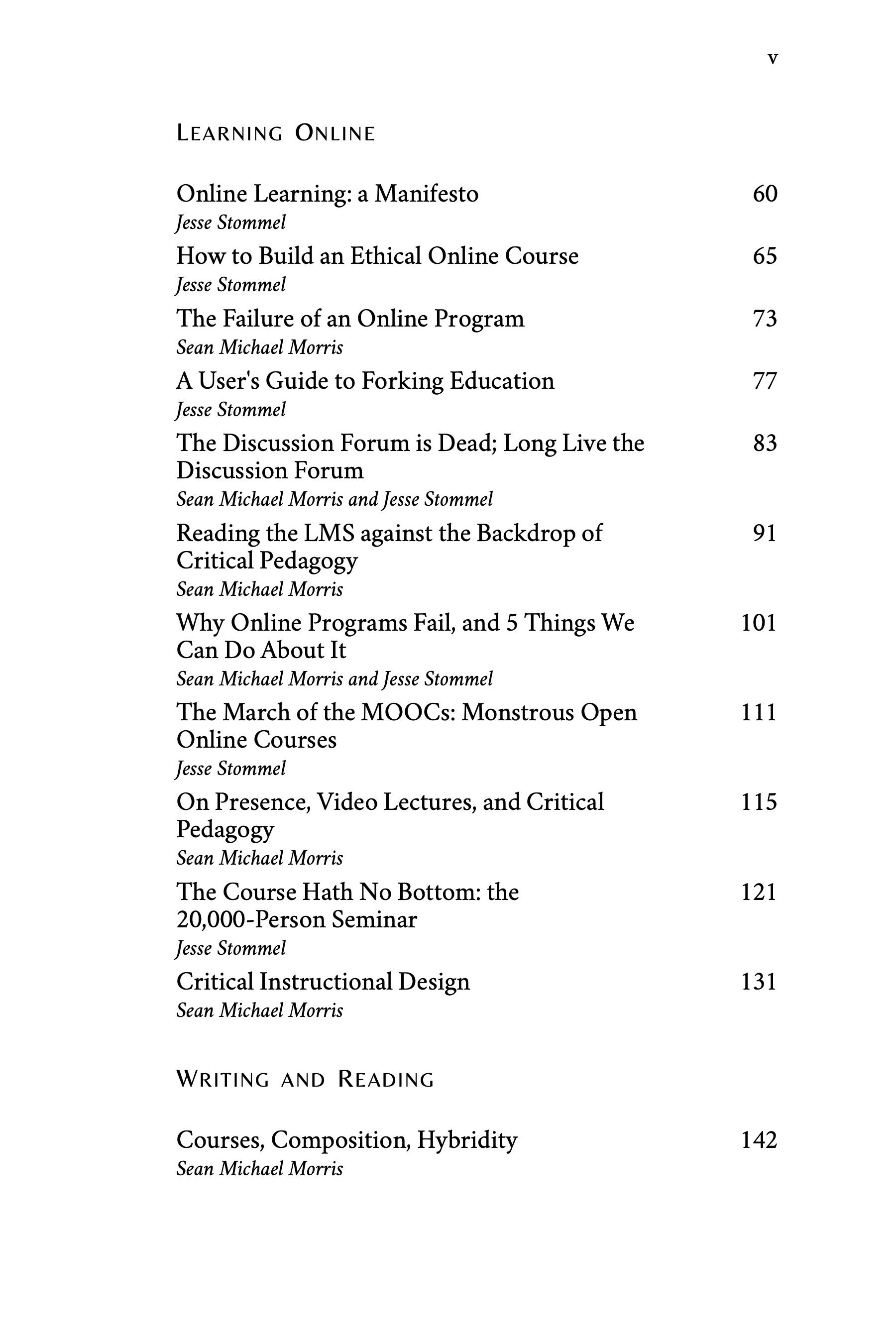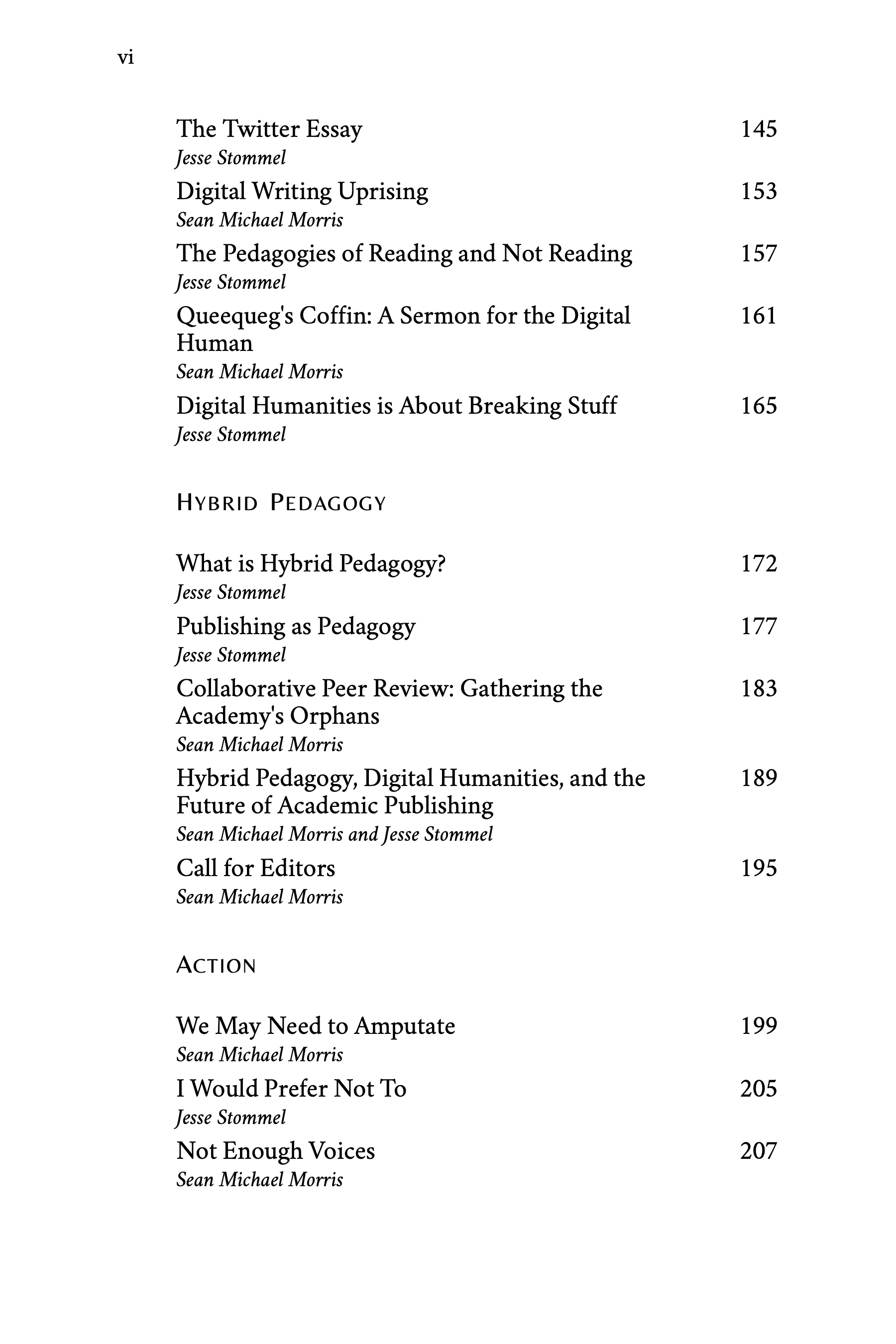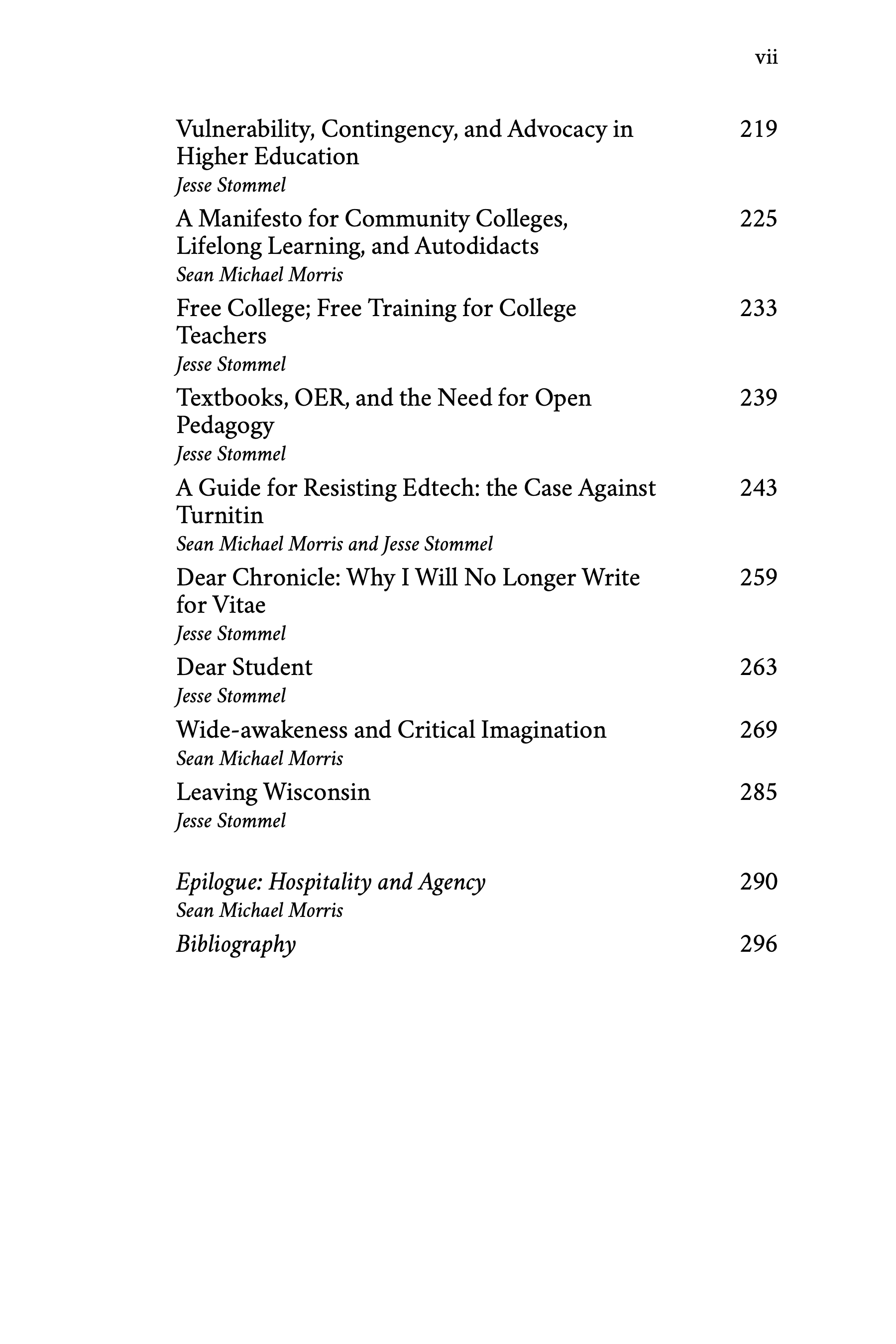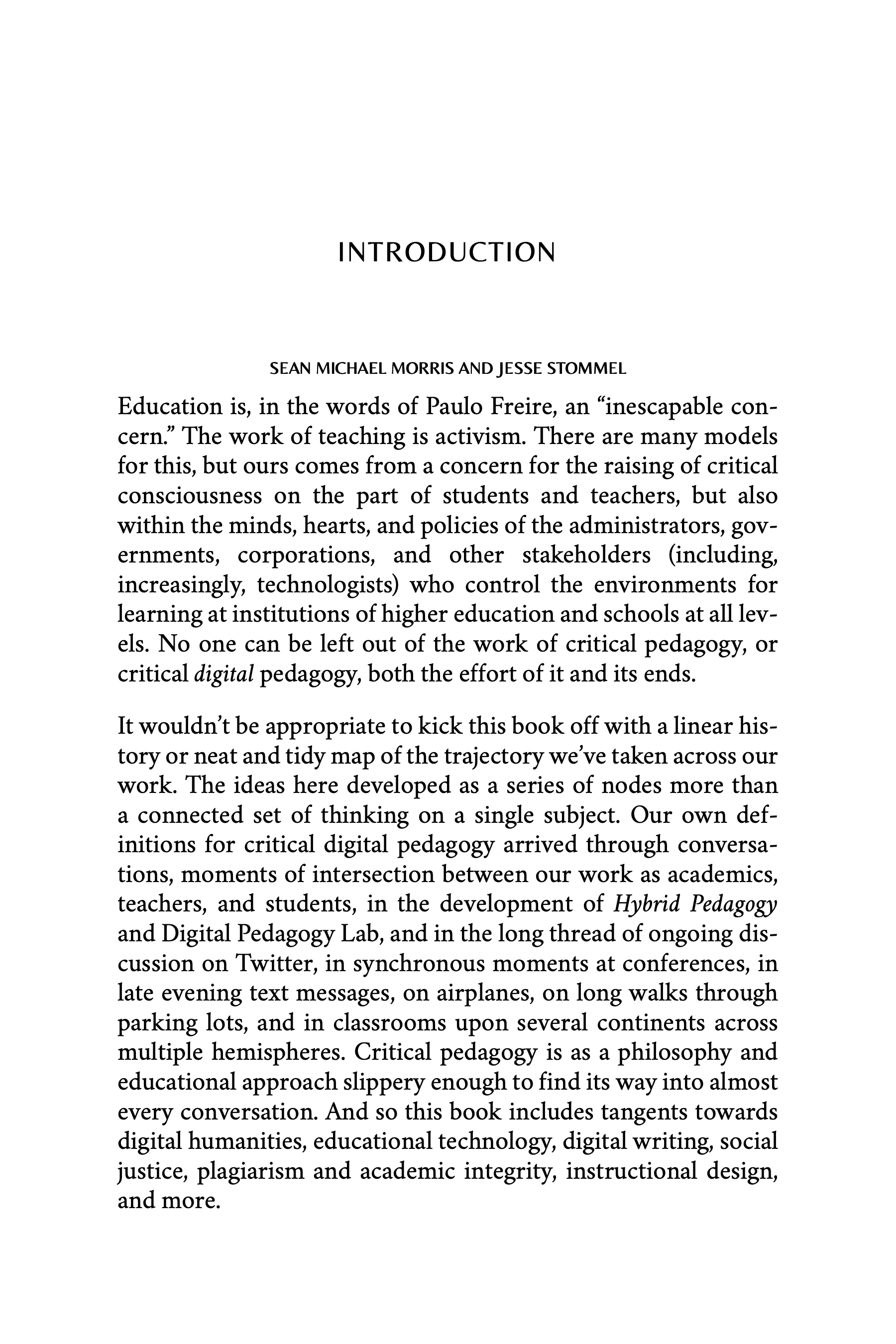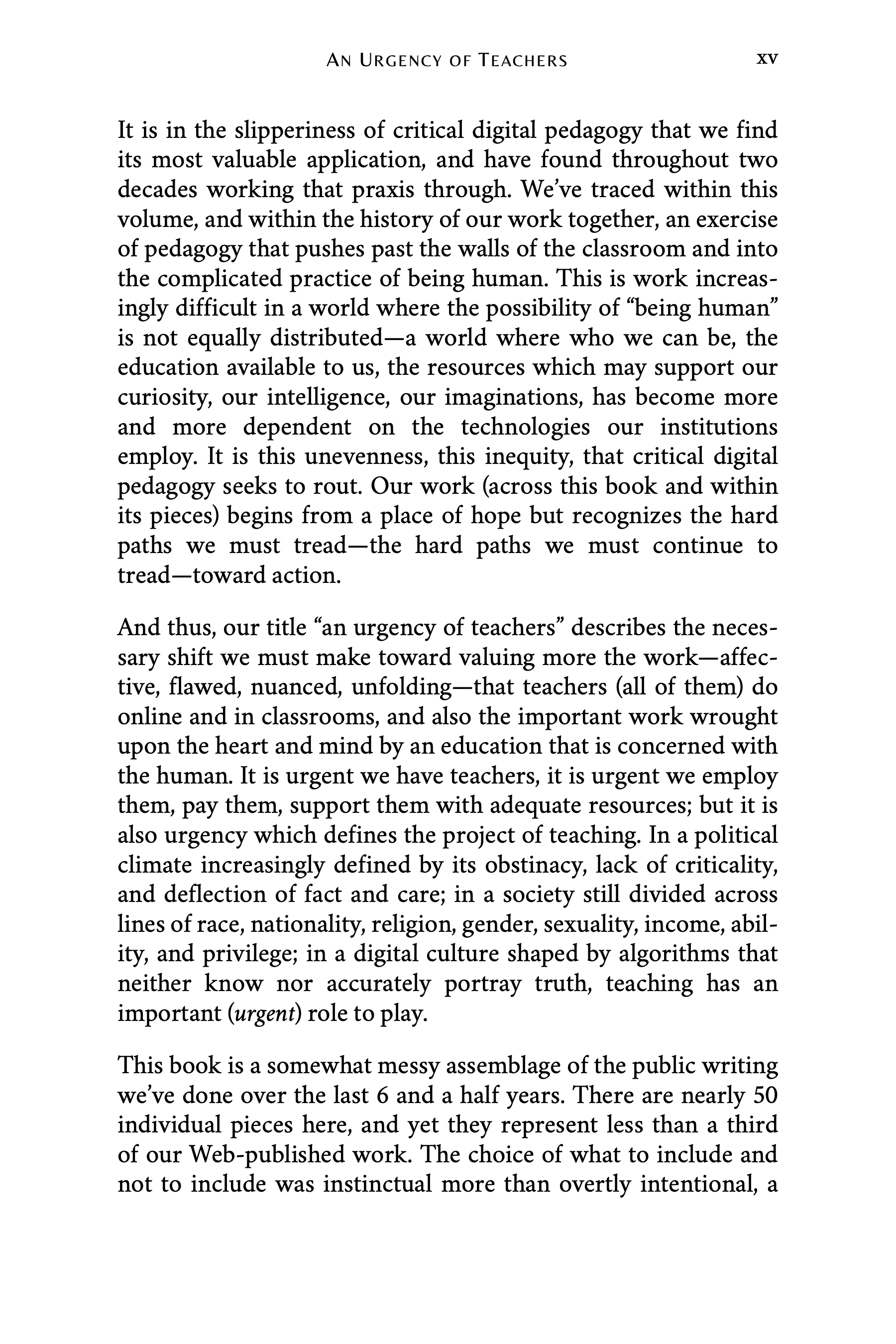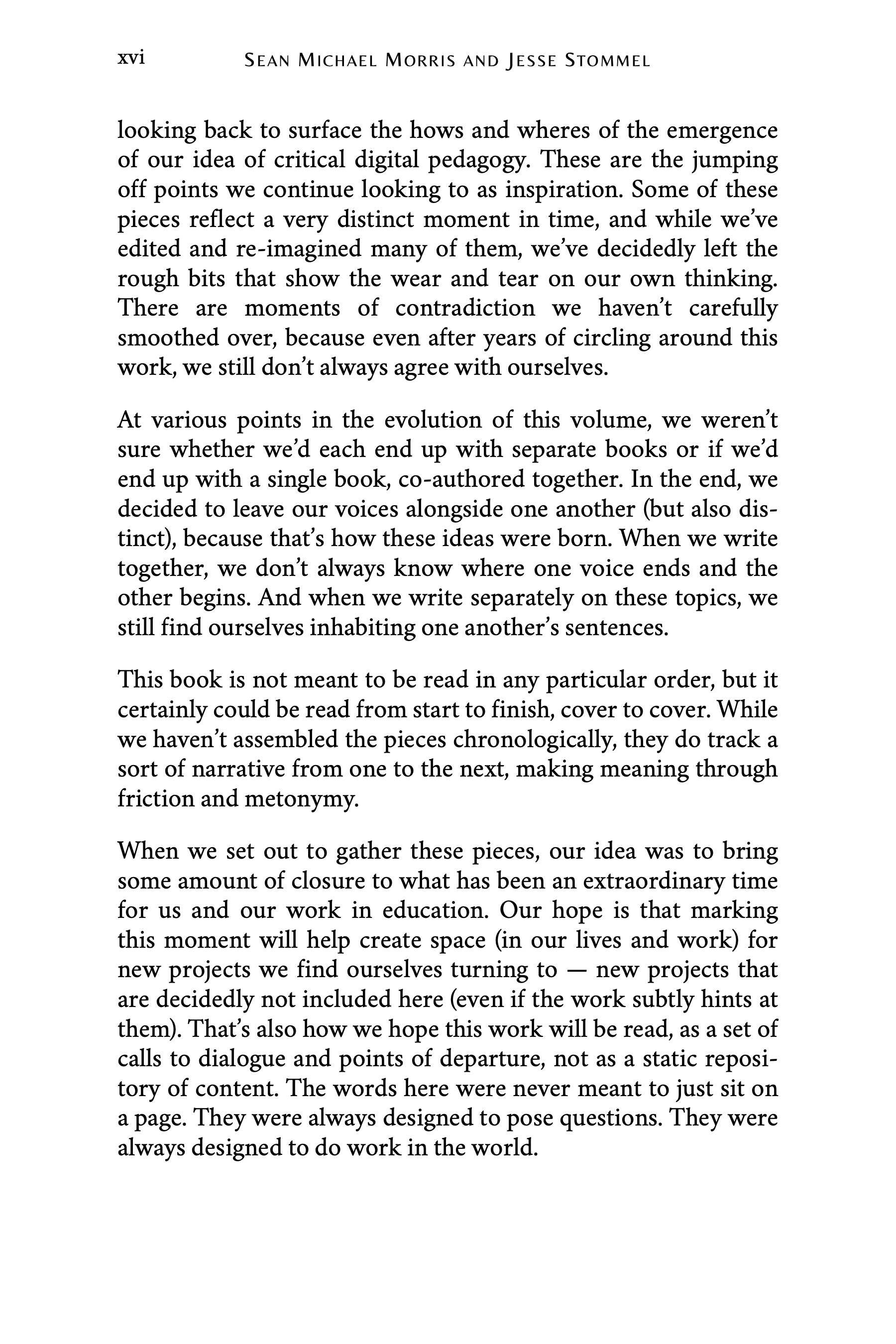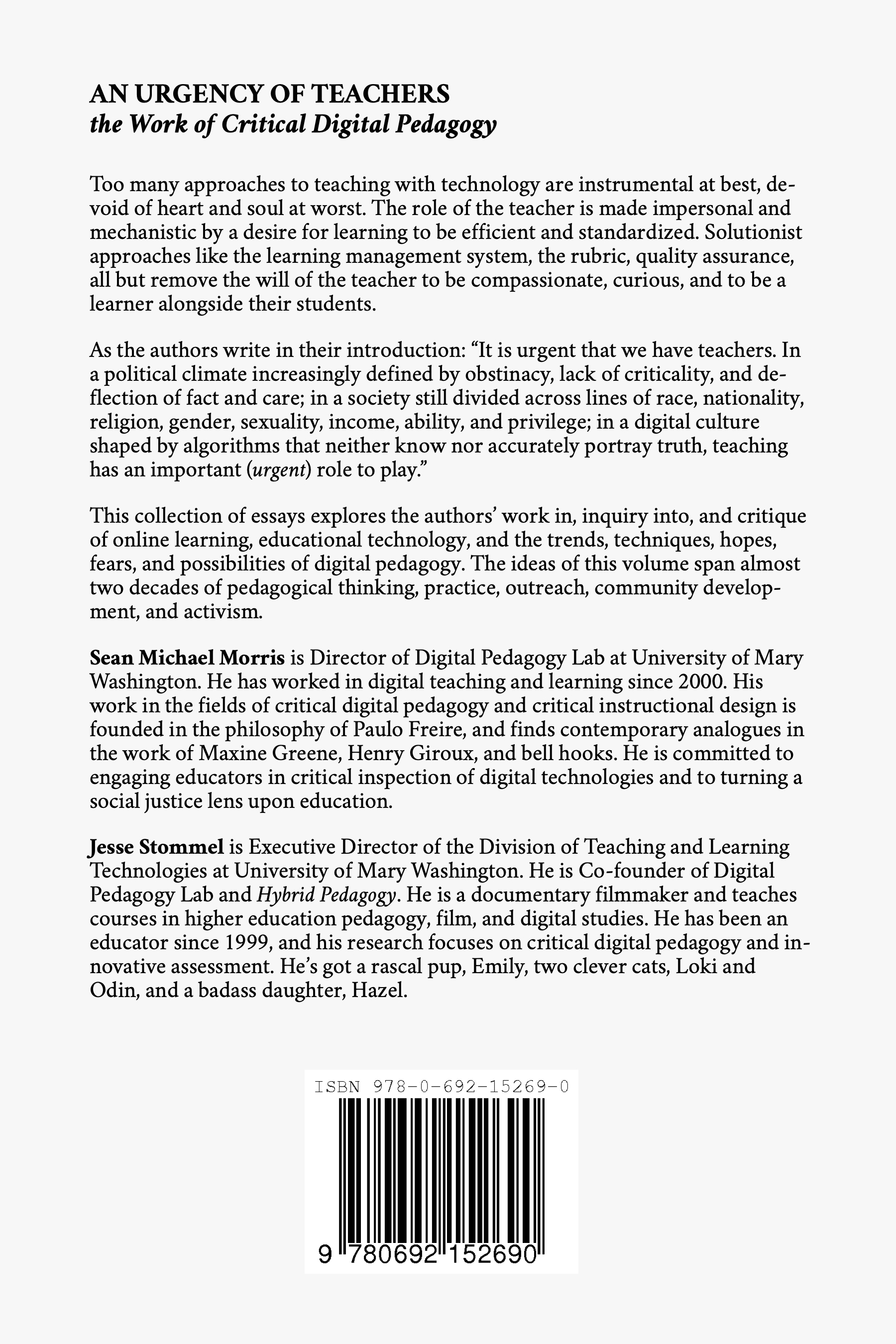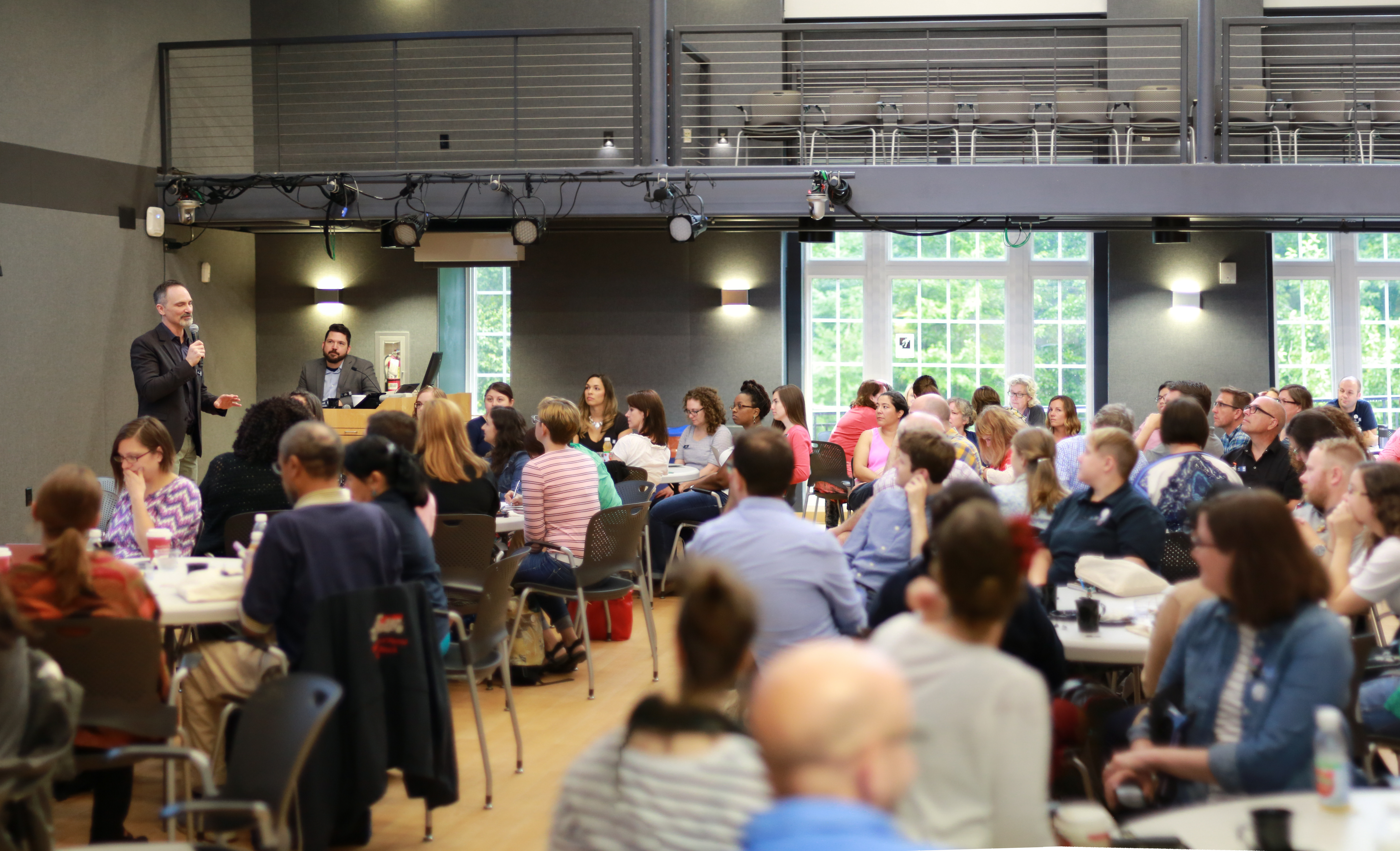Foreword by Audrey Watters
For at least a century now, we’ve been told stories that machines are poised to “revolutionize” education.The rationale for this revolution has remained largely unchanged: machines will make education more efficient … Sean Michael Morris and Jesse Stommel teach towards a different future – one in which dignity is prioritized over efficiency, one in which agency and freedom are prioritized over compliance and control … As the title of this collection of writing makes clear, in the face of stories insisting the future will be automated – that is, in the face of the urgency of machines – Morris and Stommel want us to agitate instead for An Urgency of Teachers. In positing pedagogy – critical pedagogy specifically – as a lever for change, they ask us to join them in resisting the stories that machines have wants and needs and that their logic dictates the shape of the future. Instead they urge us to center care and justice in our practices – to center humans – knowing that this will require a radical re-ordering of the priorities of our institutions and ideologies as well.
It is urgent that we have teachers
The ideas of this volume span almost two decades of pedagogical thinking, practice, outreach, community development, and activism.
PRAXIS
Educators and students alike have found themselves more and more flummoxed by a system that values assessment over engagement, learning management over discovery, content over community, outcomes over epiphanies.
WRITING AND READING
A course today is an act of composition, of the drawing together of thoughts through the use of tools to create — birth, deliver, discover, startle — not an artifact of learning, like a paper or exam, but a use.
HYBRID PEDAGOGY
The promise of digital publishing is one that begins with the entrance of the written, and one that concludes with distribution, reuse, revision, remixing — and finally, redistribution.
LEARNING ONLINE
Educational campuses have libraries, coffee shops, cafeterias, lawns, amphitheaters, stadiums, hallways, student lounges, trees, park benches, and fountains. Ample space for rallies, study-groups, debate, student clubs, and events. Few institutions pay much attention to re-creating these spaces online.
ACTION
Every day, we participate in a digital culture owned and operated by others — designers, engineers, technologists, CEOs — who have come to understand how easily they can harvest our intellectual property, data, and the minute details of our lives. To resist this (or even to more consciously participate in it), we need skills that allow us to “read” our world and to act with agency.
About The Authors
Sean Michael Morris
Sean is Co-founder of Digital Pedagogy Lab. He has worked in digital teaching and learning since 2000. His work in the fields of critical digital pedagogy and critical instructional design is founded in the philosophy of Paulo Freire, and finds contemporary analogues in the work of Maxine Greene, Henry Giroux, and bell hooks. He is committed to engaging educators in critical inspection of digital technologies and to turning a social justice lens upon education.
Jesse Stommel
Jesse is Co-founder and Executive Director of Hybrid Pedagogy and Writing Program Faculty at the University of Denver. He is a documentary filmmaker and teaches courses in higher education pedagogy, film, and digital studies. He has been an educator since 1999, and his research focuses on critical digital pedagogy and innovative assessment. He’s got a rascal pup, Emily, a clever cat, Odin, and a badass daughter, Hazel.


